On 9 May, for the first time, we had the opportunity to listen, in the same forum, to relatives of people who have disappeared at the border, specialists and representatives of international organisations who participated in the 1st International Congress of Families of Victims of Borders.
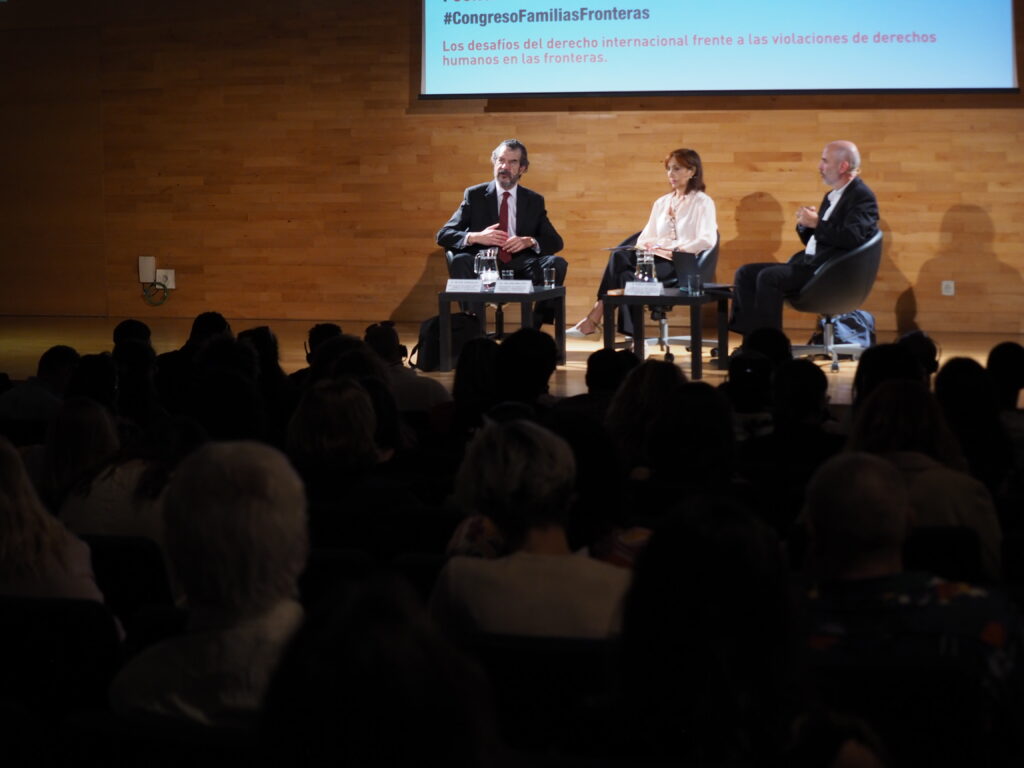
The 160 places available in the auditorium of La Casa Encendida (Madrid) were sold out a few days after the event was launched. Due to this large influx and the interest generated by the topics that were addressed, the debate between participants and the public was lively at all times, with a constant exchange of testimonies, proposals, demands and suggestions to resolve the difficulties encountered by relatives in the process of searching for and recognising their loved ones.
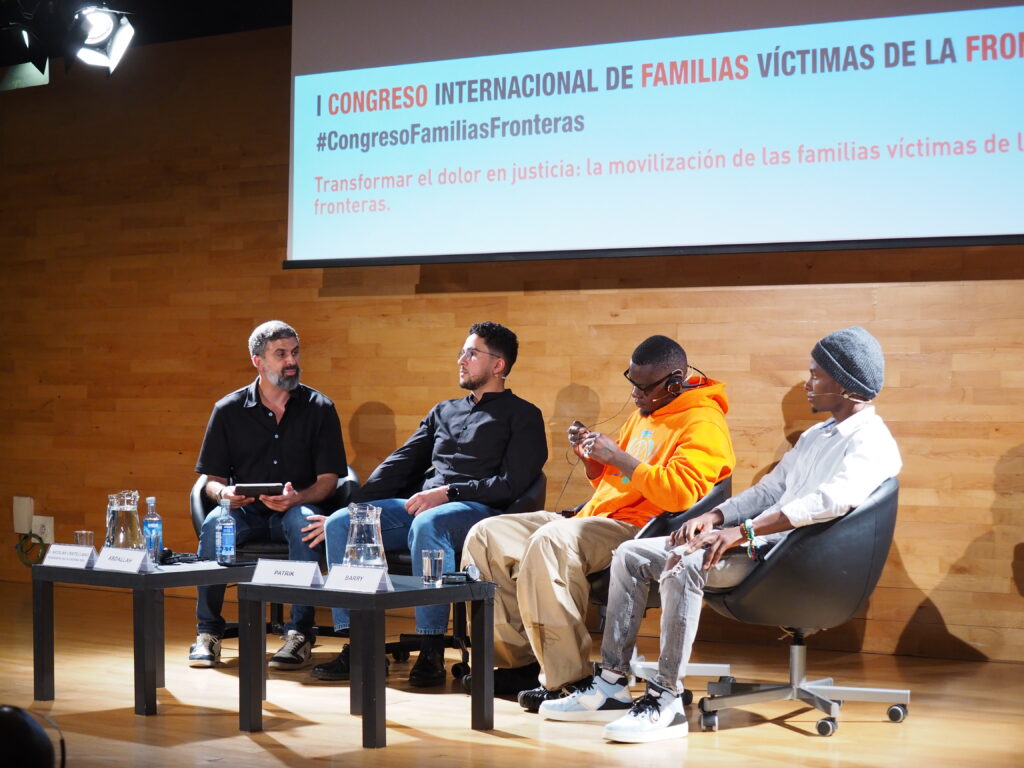
The event was followed live on our Instagram and Twitter channels, where the most outstanding testimonies from each discussion table were collected. In total, all the publications we generated around the congress achieved a reach of more than 800,000 impressions, a figure that shows the interest aroused by a completely invisible reality due to border control policies.
Those in the room were joined by all those who followed the conference via streaming. Almost 1,000 views were accumulated by the broadcast in Spanish and 500 in French.
At the congress, the families demanded that states fulfil their obligations and respect the rights of those who have died and disappeared at borders. It also became clear that the networks that the families are weaving are leading processes of truth and justice in the face of border necropolitics.
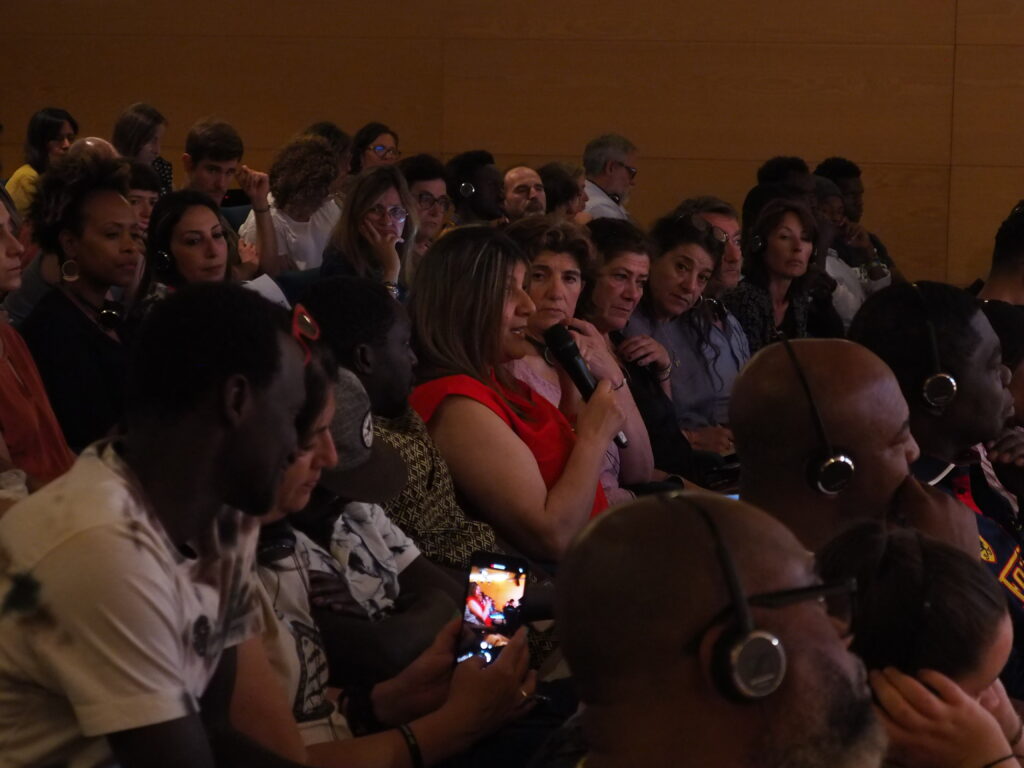
Particular requests were made: more explicit and more transparent procedures for filing a missing persons report at police stations, improved identification of corpses that appear at the border, better databases for post-mortem and ante-mortem comparisons, dignified burials, facilitation of identification processes other than DNA, involvement of consulates and embassies in origin in accompanying families, as well as the facilitation of visas for transnational searches. Without these protocols, families are at the mercy of misinformation and hoaxes; and they continue to suffer a violation of their fundamental rights, as they, too, are victims of border policies.
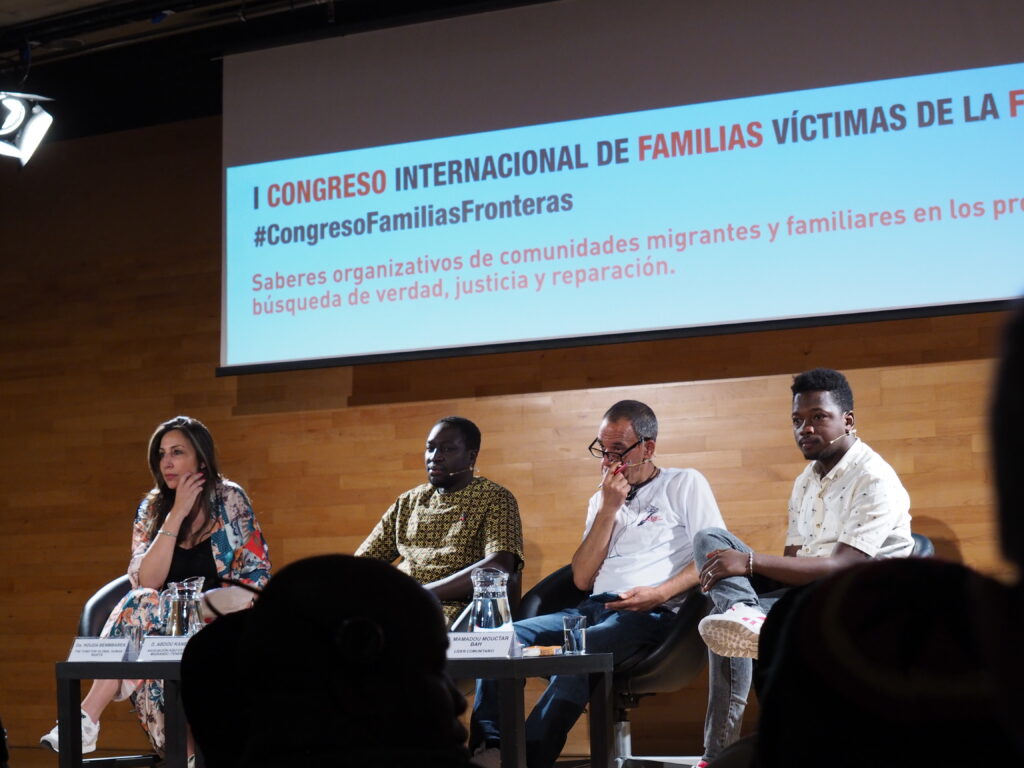
Some of the most outstanding interventions we were able to hear were:
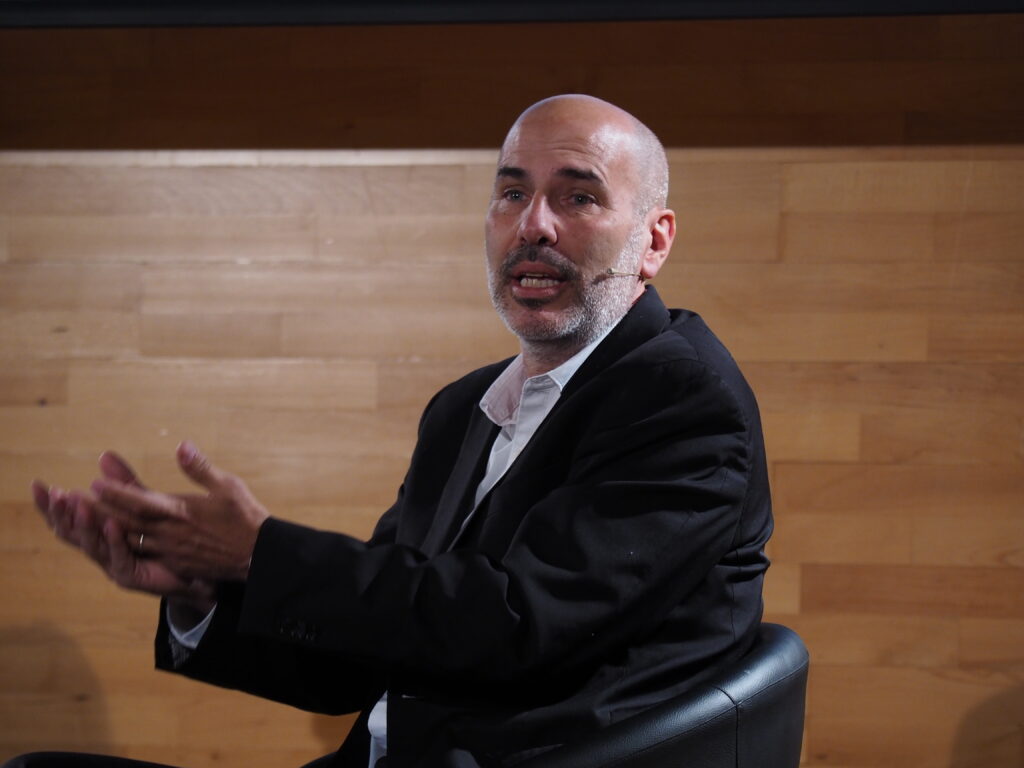
“Organised families, taking many risks, are central actors in the search for justice. This does not happen in other crimes”.
Pablo Ceriani, United Nations Committee on Migrant Rights and their Families.
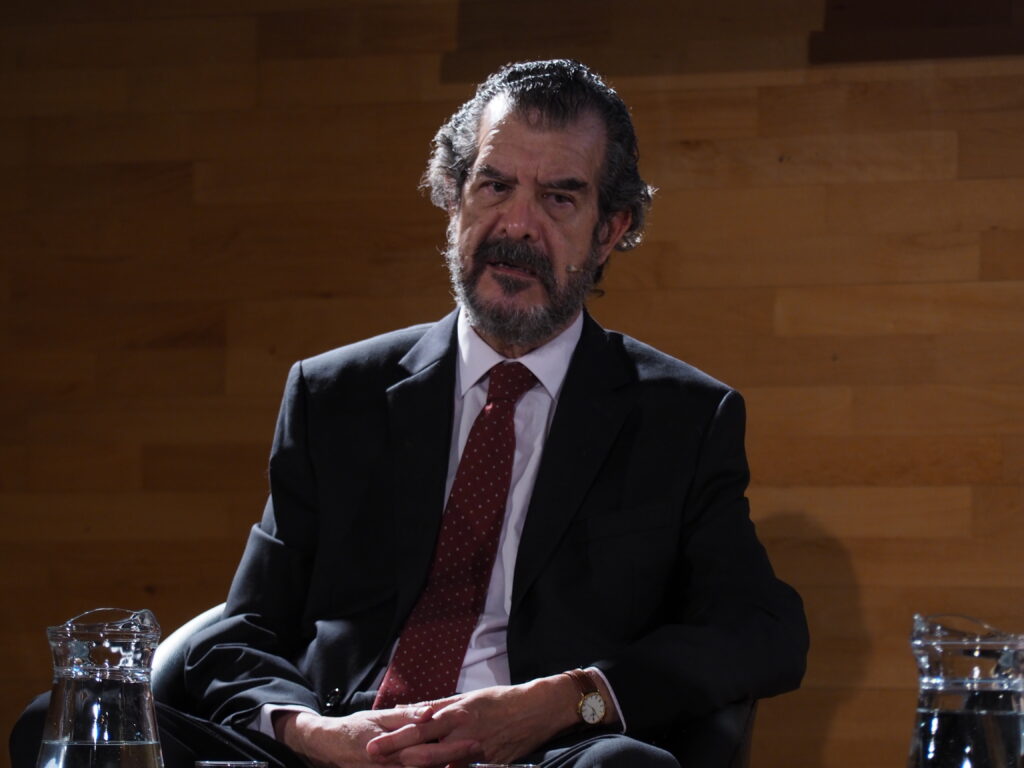
“In many countries, there is a regression. Barriers are being raised for people to migrate regularly. This creates more dangerous routes.”
Felipe Gonzalez, UN Rapporteur on Migrants.
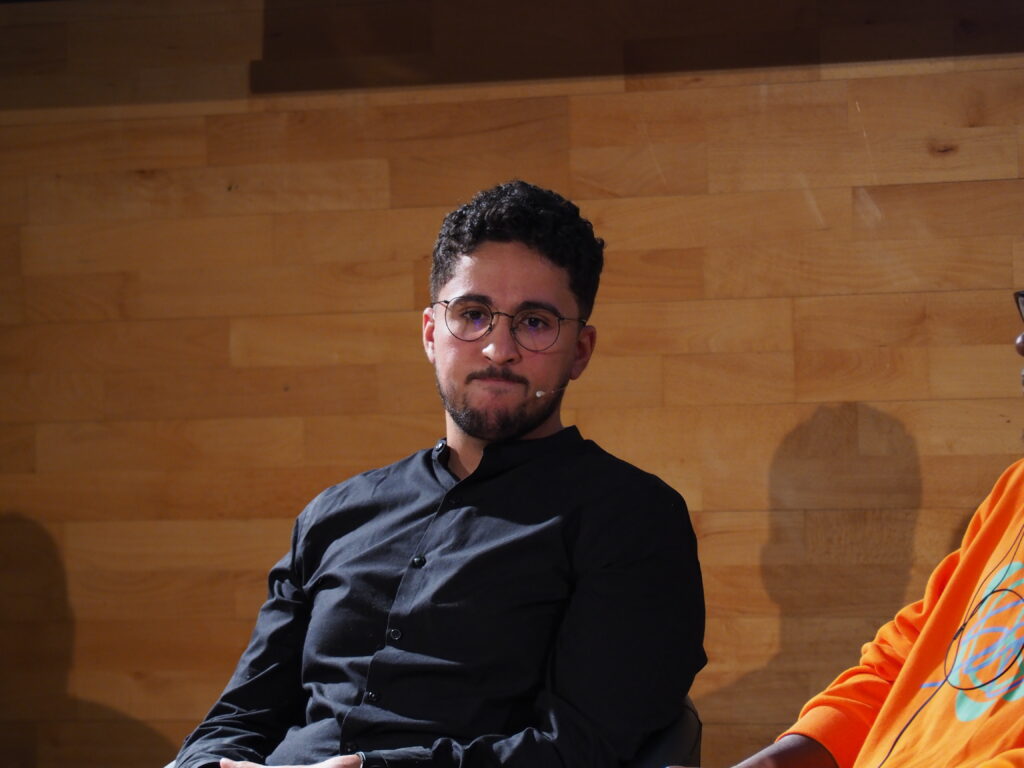
“The means, engines, and canoes may change, but the story is always the same to the millimetre. People have been at sea for five days, and the first contact with a European authority is with Frontex because they will interrogate them”.
Abdallah, a family member of a missing person.
“If the embassies of our countries were involved in the search for the missing, all the processes would be simpler. Families cannot identify the bodies, come to say goodbye or bury them in their place of origin.”
Abdou Kane, Spokesperson Here We Are Migrating.
“There are no projects to search for the disappeared because they do not want to recognise that migration policies are unjust and take many lives”.
Mamadou Mouctar Bah, community leader.
“The families of migrants suffer pain, stigmatisation and denial of access to the remains of their relatives, something that the victims of Franco’s regime also suffered. Our first achievement was to break the silence. To put victims who were invisible on the table to begin to create security and protocols in the search for the victims”.
Almudena García-Rubio Ruiz, researcher at the Aranzadi Science Society.
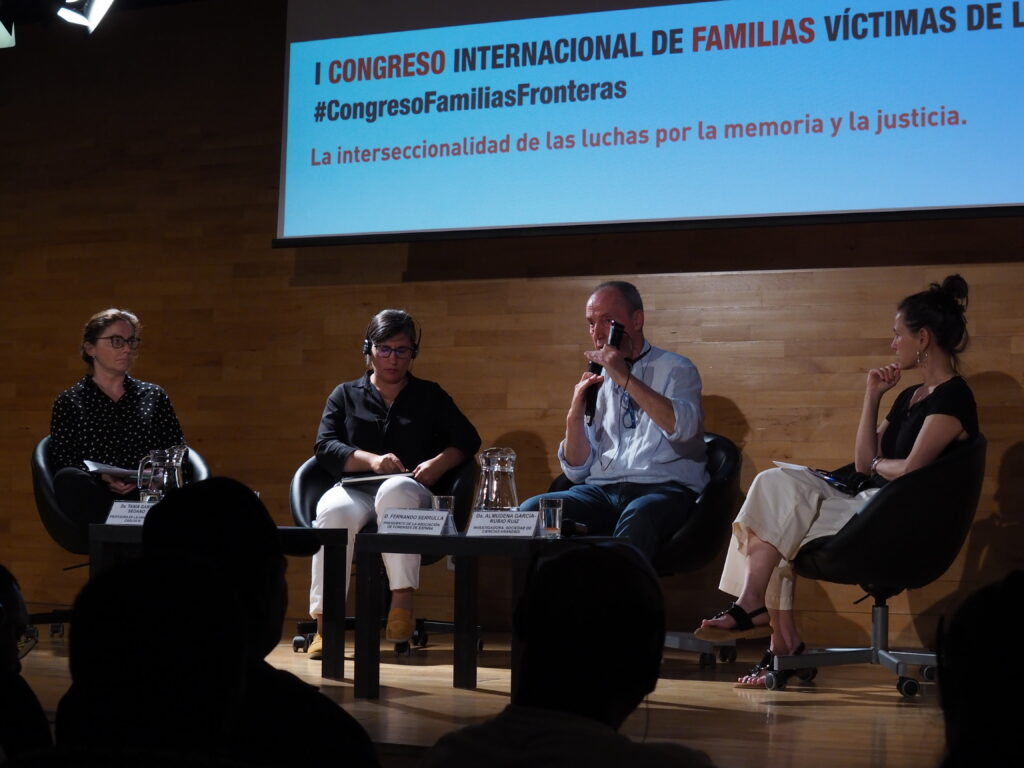
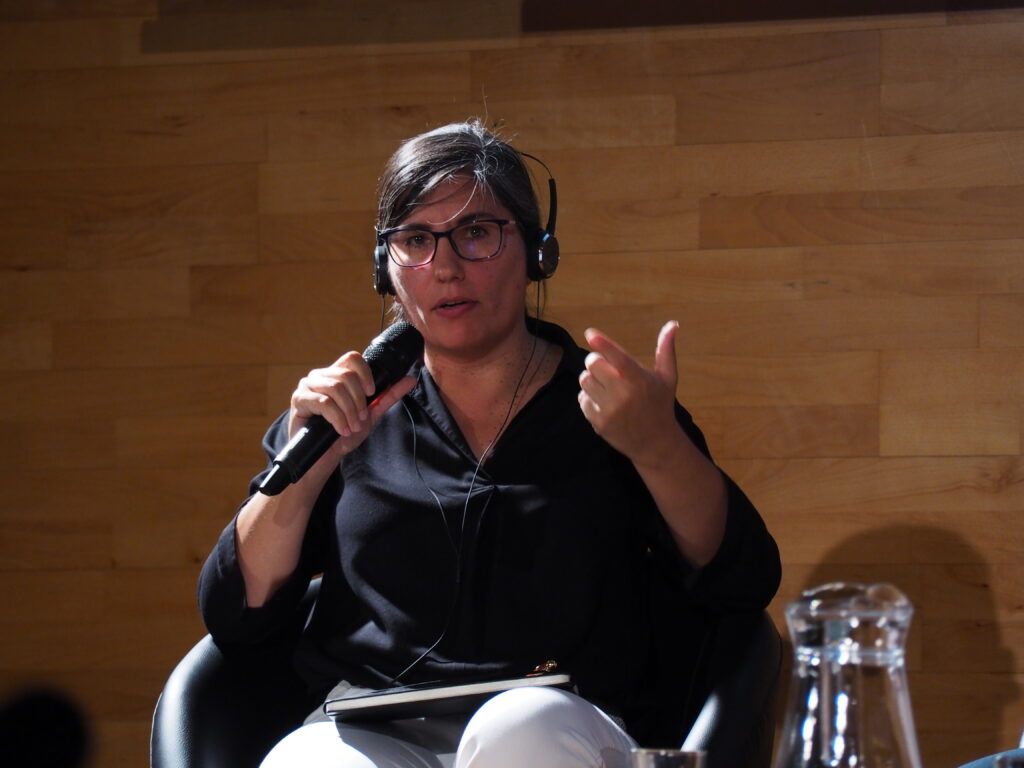
“The families of the victims of the borders have the right to be considered victims, to know what happened, to search, to participate in the investigation, to bury their relatives…”.
Patricia Fernández Vicens, lawyer and advocate for migrants’ rights.
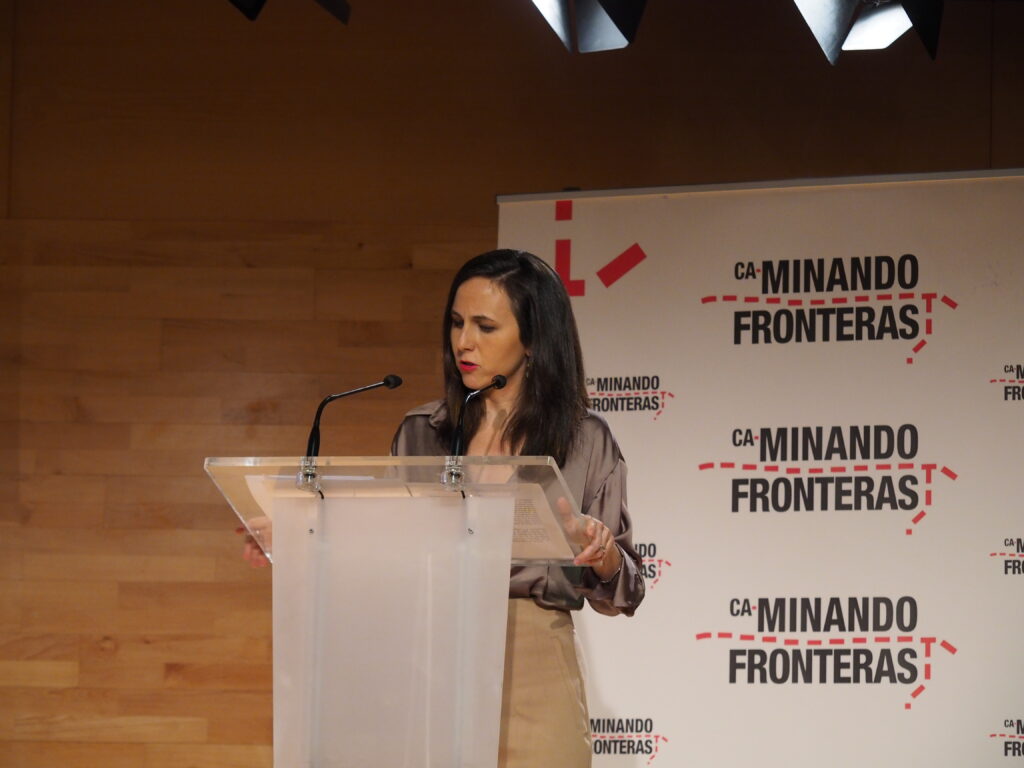
“The main reason for illegal migration is that it is impossible to get a legal visa, so people pay thousands of euros to get on a boat and risk their lives to migrate. A humane migration policy is possible.”
Ione Belarra, Minister for Social Rights and Agenda 2030.
“I am the voice of many mothers, fathers, brothers and sisters. They cannot be here. I am only the body, but the soul is also here: all the mothers and fathers”
Katya, a victim’s relative.
“The morgues on the coasts are full of bodies; for every one of them, a desperate family is looking for them; more could be done to help them; we could work with their DNA”
A victim’s relative.